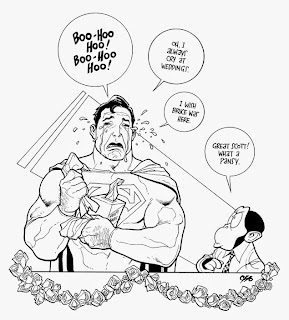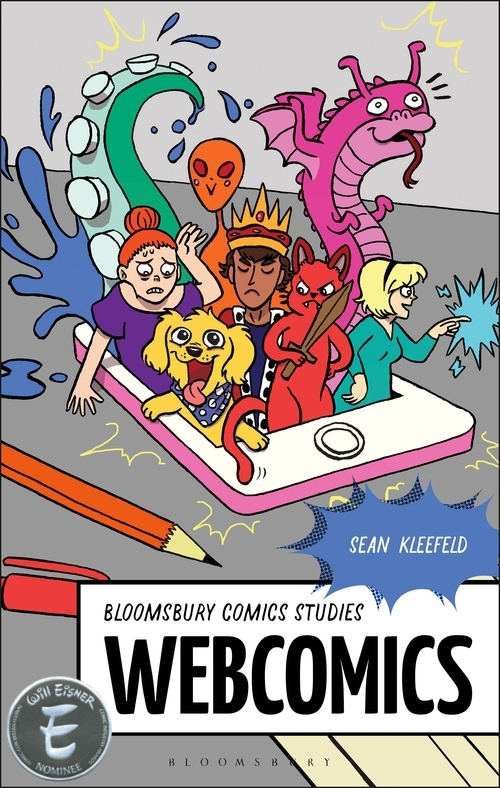Let's say you've got this cool new comic you've done. Maybe it's a webcomic, maybe it's a series of floppies, maybe it's gone straight to the graphic novel treatment. Doesn't matter. You might describe it in a shorthand that sounds like...
"It's a cross between Superman and Liberty Meadows."
Or...
"It's kind of like Death Note meets Spy vs Spy."
And you're thinking to yourself that part of your goal is woo in readers who already interested in those comics. That makes sense, right? If they've expressed an interest in one comic, they might express an interest in your comic that has some of the same elements. Maybe they will, maybe they won't, but you've at least got a frame of reference to start with.
Another way you might describe your comic might be...
"It's just like Deadpool, but funnier."
Or...
"It's the next Pearls Before Swine."
That's a harder sell, because people know that it's almost certainly hyperbolic. Plus, you're making a direct comparison to a single, well-done comic (you wouldn't be comparing yourself to a piece of crap that nobody liked, right?) and you're expressly saying that yours is better. At least with the mashup version, you're acknowledging multiple sources of inspiration and the comparisons are more oblique.
Regardless of how you're approaching selling your as-yet-unknown comic to someone, here's something to keep in mind: you are not, I repeat, not in competition with whatever you're comparing it to.
If you like Superman, there is no substitution for Superman. You can get kind of close with Supergirl or Captain America or Superduperman or your Superman/Liberty Meadows mashup, but those are not Superman. They would only serve as possible substitute for Superman if Superman were not available.
Comics are not commodities. They aren't interchangeable. You can't simply swap Superman with Moon Knight and expect readers to be happy. That should be fairly obvious, right?
(By the way, I'm talking primarily about characters and titles here, but the same applies to creators. People might read Superman because of the writer on the book, and will happily switch over to Captain America if the author starts writing that title. But if that's the case, they're not going to be swayed by your character analogy/reference in the first place; you'd have to say something more along the lines of "I write kind of like a cross between Scott Snyder and Gail Simone." In any event, the basic concept I'm talking about here will still remain the same.)
Your competition is not against those other titles that you compare yourself to. Your competition is actually whatever title(s) the reader likes about equally to yours.
Think about it this way... what if you ranked all the comics you currently read in the order that you enjoy them? One being the title you like most of all, two being your second favorite, and so on. If this new comic is #12 on the list, your competition is #11 and #13. Because if the reader has to start cutting back on their reading for time or budget reasons, they're going to start by trimming off what they like the least. They're not going to drop their #1 favorite book unless they absolutely have to. But their #12 book? That's not going to be as painful a decision.
So if your Superman/Liberty Meadows mashup ranks at #12 for somebody, you are competing not against Superman but against whatever is in spot #11. Maybe that's Archie. Or maybe Rat Queens. Or maybe Walking Dead. Whatever it is, that's what your comic has to become better than if the reader decides they can only afford eleven comics now.
Similarly, you also have to remain better than whatever is at spot #13. Because they're trying to become better than #12 -- your Superman/Liberty Meadows mashup! If you start going farther down the list, you risk greater and greater danger of being dropped.
You, as a creator, can't know what every reader's list looks like, and you can't know how your comic rates in the minds of the readers relative to everything else they read. So all you can do, really, is put out the best comic you possibly can.
And not worry about whether you have to be better than Superman.







0 comments:
Post a Comment